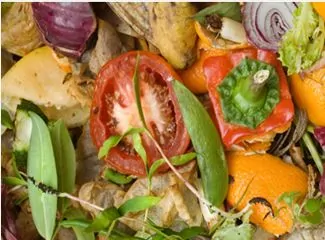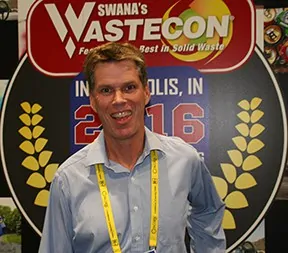

Soil health is a cornerstone of sustainable agriculture, and the USDA’s Natural Resources Conservation Service is taking steps to support it through Conservation Practice Standard Code 336. This initiative, part of the Environmental Quality Incentives Program (EQIP), offers financial incentives to land managers who apply soil carbon amendments, such as compost, biochar, and blended materials, to improve soil quality and sequester carbon. For compost and biochar producers, this program could be a significant driver of demand for compost and biochar products that meet USDA standards for soil carbon amendments.
Why Soil Carbon Amendments Matter
The USDA’s Code 336 program enhances soil organic matter, increases carbon sequestration and soil carbon stocks, improves soil aggregate stability, and supports healthy soil ecosystems. These benefits contribute to long-term agricultural productivity and align with broader climate resilience goals.
Reimbursement Rates and Financial Incentives
Reimbursement rates vary by state and are higher for historically underserved (HU) land managers. EQIP covers the cost of purchasing, transporting, and applying soil carbon amendments. For example, in Massachusetts, reimbursement for 100% biochar is $211.37 per cubic yard, while HU land managers receive $253.64. Blended compost/biochar options and small-area applications are also eligible, with rates adjusted accordingly.
Here’s a snapshot of some Massachusetts EQIP rates:
| Component |
Unit |
Standard Rate |
HU Rate |
| 100% Biochar | CuYd |
$211.37 |
$253.64 |
| 20% Biochar / 80% Compost | CuYd |
$105.91 |
$127.09 |
| Compost Off-site by Volume | CuYd |
70.02 |
84.02 |
Eligible Land Types in USDA EQIP Code 336
The program applies to a wide range of land uses, including:
Landowners are responsible for planning and implementing the amendment applications, including securing necessary permits. EQIP may also reimburse planning and testing costs, provided the soil at the proposed site is evaluated and found to need amendment.
Standards for Compost and Biochar in USDA EQIP Code 336
To qualify for reimbursement, amendments must meet specific criteria, including:
Compost Requirements
Biochar Requirements
Conclusions About USDA EQIP Code 336
The USDA’s EQIP Code 336 program offers a valuable opportunity for land managers to enhance soil health while receiving financial support. By encouraging the use of compost and biochar, the program promotes sustainable agriculture and helps build a robust market for carbon-based soil amendments.
For compost and biochar producers, this program could be a significant driver of demand for products and support environmentally beneficial practices across many land uses.
Additional Resources:
Join SCS Engineers as Speakers and Sponsors at the 2025 New Mexico Recycling and Solid Waste Conference taking place in downtown Santa Fe, New Mexico at the Santa Fe Community Convention Center on September 30th through October 1st. SCS Engineers is proud to serve as both a sponsor and presenter at this year’s New Mexico Recycling and Solid Waste Conference. The two-day event will feature keynote speakers, breakout sessions, networking opportunities, and the Recycling and Solid Waste Awards.
Featured Presentation:
Compost Generation and Use in New Mexico
This session will highlight findings from a recent study commissioned by the New Mexico Department of Agriculture, exploring compost generation and use across the state. Topics include regulations, waste stream data, industry challenges, in-state case studies, neighboring state comparisons, outreach and education, and federal program support. The study provides valuable insights for stakeholders—whether starting a composting operation or planning broader industry growth.
Connect with SCS experts at the 2024 CT Compost Conference presented by the Connecticut Compost Alliance at Connecticut College on March 14th in New London, CT. This free, one-day event features engaging in-person sessions where attendees can learn more about how composting benefits local communities, businesses, residents, farms, the environment and improve climate resiliency.
 SCS National Expert on Organics, Greg McCarron, PE, will present and exhibit.
SCS National Expert on Organics, Greg McCarron, PE, will present and exhibit.SCS is proud to be a Silver sponsor for this exciting event. Registration is free and open to the public.

SCS is helping public and private entities evaluate their organic waste streams and the applicability of established and emerging technologies (e.g., composting, anaerobic digestion) to their specific communities and circumstances. Current and recent project examples include the following:
SCS is actively pursuing work in the organics materials management sector and has a staff devoted to staying current with the latest trends and technologies. SCS can evaluate, design, permit, construct and operate organics facilities, using varying technologies. Compost technologies that SCS is considering for implementation include:
Anaerobic digestion (AD) technologies that SCS is considering for implementation include high solids (dry) or low solids (wet) systems. High solids/dry systems are applicable for food and yard waste. Dry systems for food and yard waste generally use tunnels, which are gas-tight, concrete, garage-like chambers and are loaded using front-end loaders. Low solids/wet systems are applicable for manure, sludges, and liquid industrial waste. Wet systems generally use vessels, which are mixed and are fed using pumps.
Learn more about these SCS services.
